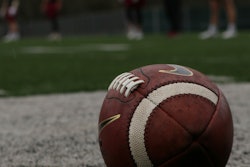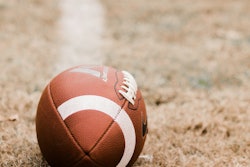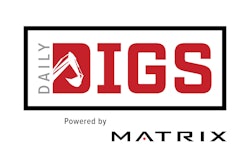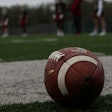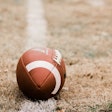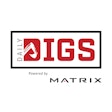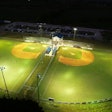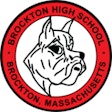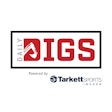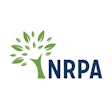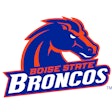Copyright 2014 The Washington Times LLC
All Rights Reserved
The Washington Times
ANN ARBOR, MICH. | The opponent is still unknown. The venue has yet to be announced. But a year from now, the hockey world will descend on Washington when the NHL's annual Winter Classic makes its way to the District.
The Capitals have participated in the event before. Thousands of fans made the drive to Pittsburgh on Jan. 1, 2011 to watch their team beat the Penguins 3-1.
But it's a different animal when a team is the host.
The Detroit Red Wings found that out this week when they faced the Toronto Maple Leafs on Wednesday in the sixth edition of the game and the first featuring a Canadian team. Toronto won 3-2 in a shootout.
Thousands of fans made the drive across the border wearing blue and white Maple Leafs jerseys. They poured into University of Michigan Stadium - the Big House - as a steady snow greeted their entrance into one of college football's hallowed grounds.
"It's like a once-in-a-lifetime experience," said Maple Leafs fan Akiva Glasenberg, who drove almost six hours from Toronto with two friends, Avi Marder and Aryeh Rosen, on a snowy trek that normally would have taken less than five.
They weren't alone. Maple Leafs fans appeared to outnumber even the rabid Detroit supporters who long ago dubbed their city Hockeytown. When Toronto forward James van Riemsdyk tied the game at 1-1 late in the second period, a sea of blue leapt from the seats in celebration.
"It's New Year's Day. What else are we gonna do?" Marder cracked. "We decided this yesterday. Bought the tickets online. It's all very spontaneous."
The Caps aren't sure about their own venue yet. Nationals Park makes the most sense and several league sources confirmed reports earlier in the week that the NHL hopes to go that route.
The baseball stadium has a Metro line directly across the street and allows the league to keep its ancillary events, like the popular alumni game, centrally located in a way that playing at FedEx Field in suburban Maryland never could.
The NHL has held the Winter Classic at baseball stadiums before, using Wrigley Field in 2009 and Fenway Park in 2010. That's not always an ideal scenario, however.
"What we find when we go into baseball stadiums is the tickets that have been the best tickets for the viewing of a hockey game aren't necessarily the best tickets for viewing a baseball game," said John Collins, the NHL's chief operating officer and the man who helped spearhead the formation of the first Winter Classic in 2008 between Pittsburgh and Buffalo.
Those two baseball stadiums also have a historical cache that Nationals Park, which opened in 2008, just can't match. That goes for Michigan Stadium, too. So a Winter Classic in Washington can't rely as heavily on the venue to provide the nostalgic atmosphere the event thrives upon.
"If you haven't been to a football Saturday here, then you should put it on your bucket list," Detroit coach Mike Babcock said of Michigan Stadium. "It's the best sporting event. I've been to the Olympic Games, the World Series, the Stanley Cup. I've been to a few things to say the least. This is probably the best sporting event I've ever been to, bar none. Can it transfer into hockey? I assume it can."
Collins said that league officials have visited Washington, but was adamant that no opponent has yet been picked and no deal struck for a venue. The opponent is typically chosen when the NHL begins work on its schedule for the following season. But the Boston Bruins and the Philadelphia Flyers, two Eastern Conference teams with massive fan bases that could travel easily to Washington, are two obvious candidates.
One issue with playing the Winter Classic in the District is the unpredictable weather. In Ann Arbor, the Red Wings and Maple Leafs skated in a steady snow that only added to the atmosphere. Fans bundled up, braving temperatures that dipped as low as 12 degrees.
That wasn't the case when the Caps played at Pittsburgh in 2011. Temperatures that night rose into the 50s and the players had to deal with a pouring rain that made the game brutishly simple: Fling the puck up ice and go chase it. Passes weren't making it tape-to-tape.
But while Washington's temperatures average between 29 degrees and 44 degrees in January, the city has seen massive blizzards (1996) early in the month and temperatures as high as 69 degrees (2005) on New Year's Day.
Still, Dan Craig, the NHL's ice guru, isn't fazed. He and his team have put together the rink for every Winter Classic and this year the league asked them to do six additional outdoor games, including two in New York during Super Bowl week and one in balmy Los Angeles between the Kings and the Anaheim Ducks at Dodgers Stadium. Craig and his crew arrived in Ann Arbor on Dec. 10 and the NHL's ice truck followed on Dec. 14.
"Mother Nature, she's going to do what she's gonna do," Craig said. "You deal with it. You get up in the morning, you watch the forecast and you have a few little tricks in your bag and hopefully everything works out.
On New Year's Eve, while others were planning for evening festivities, Craig was monitoring everything from the surface temperature of the ice - 22 degrees is perfect - to the weather forecast, which called for steady, light snow most of the morning. Even a four-degree difference can force adjustments like turning off the heaters - yes, heaters - to reach that ideal number.
Craig was in Ann Arbor on Tuesday afternoon, but he challenged a reporter on the temperature in Los Angeles the night before. A nice warm evening in the 60s? Nope. The low was 48 degrees on the dot. That game will be played on Jan. 25.
Craig and his handpicked team of mechanics and engineers from across the country, with experiences as varied as Olympics and Stanley Cup finals, are ready. So he really isn't worried about what the weather in Washington will bring him next New Year's Day.
Craig remembered how awful the ice was at Wrigley Field's temporary rink in 2009 the day before the game. Players rightly complained about the conditions after a pair of practices on it. But on game day 24 hours later, the ice surface was, by all accounts, the best of any Winter Classic. Nothing can be taken for granted in Craig's line of work.
Maybe one day the NHL will roll snake eyes and the weather will be a disaster, the ice surface dangerous. But the benefits to the league and the sport, financially and as a branded event on a national holiday, far outweigh those inevitable negatives.
"It's kind of like the Super Bowl setup in a way," Babcock said. "Our game, because we go back and forth to the Stanley Cup playoffs, doesn't transfer that way. We can't do it. But this is an unbelievable event to sell hockey."
Terms and Conditions Privacy Policy

















